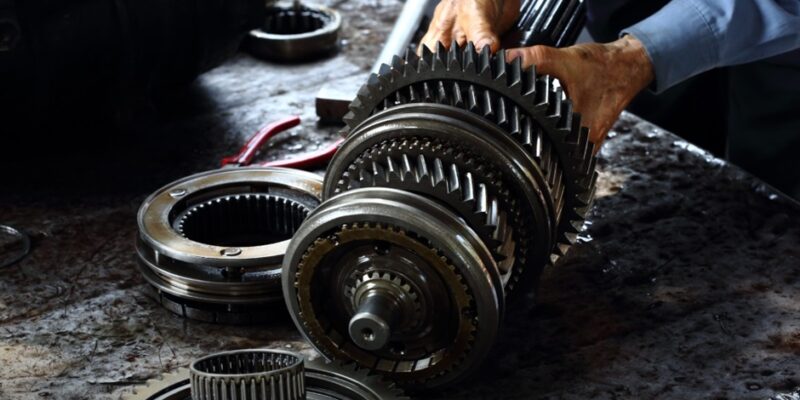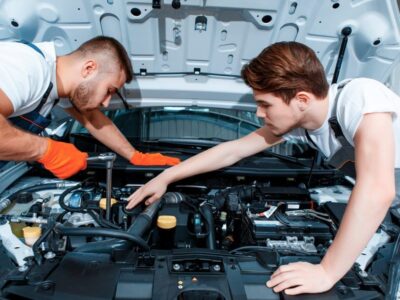Maintaining your vehicle in peak condition is essential for ensuring its longevity and performance. Whether you’re driving a compact car or a heavy-duty truck, regular maintenance and timely repairs are key to avoiding costly breakdowns and extending the life of your vehicle. This article explores the critical areas of vehicle maintenance, with a focus on diesel repair and transmission repair, to help you keep your vehicle running smoothly for years to come.
The Importance of Regular Maintenance
Regular vehicle maintenance is the foundation of longevity. It involves routine checks and services that prevent minor issues from becoming major problems. Key maintenance tasks include:
- Oil Changes: Regularly changing your engine oil is crucial for maintaining engine health. Fresh oil reduces friction, lubricates engine components, and helps prevent overheating.
- Tire Maintenance: Ensuring your tires are properly inflated and regularly rotated helps maintain even wear and improves fuel efficiency. It also enhances safety by reducing the risk of blowouts.
- Brake Inspection: Regular brake inspections and servicing ensure your brakes function properly, providing the stopping power needed in emergencies and preventing wear on other components.
- Battery Checks: A healthy battery is essential for starting your vehicle and powering electrical systems. Regular checks can prevent unexpected failures.
By following a consistent maintenance schedule, you can avoid unexpected breakdowns and extend the life of your vehicle, ultimately saving you time and money.
Diesel Repair: Ensuring Peak Performance for Diesel Engines
Diesel engines are known for their durability and fuel efficiency, making them a popular choice for trucks and heavy-duty vehicles. However, like any engine, diesel engines require specialized care to maintain their performance and longevity.
Understanding Diesel Engine Maintenance
Diesel engines operate at higher compression ratios and temperatures than gasoline engines, which means they experience more wear and tear over time. Key maintenance tasks specific to diesel engines include:
- Fuel System Maintenance: Diesel fuel systems are sensitive to contamination. Regularly replacing fuel filters and using high-quality diesel fuel helps prevent clogs and injector damage.
- Turbocharger Inspection: Turbochargers are common in diesel engines and play a critical role in performance. Regular inspections can detect issues like oil leaks or worn bearings, preventing more severe damage.
- Glow Plug Replacement: Diesel engines rely on glow plugs to start in cold weather. Replacing faulty glow plugs ensures reliable starts and prevents unnecessary strain on the starter motor.
- Exhaust System Checks: Diesel engines produce more soot and emissions, so regular exhaust system checks are necessary to ensure proper functioning of components like the diesel particulate filter (DPF).
By addressing these areas, you can keep your diesel engine running efficiently and avoid costly repairs down the road. It’s also important to work with a qualified diesel repair specialist who understands the unique requirements of diesel engines.
Transmission Repair: Protecting the Heart of Your Drivetrain
The transmission is one of the most critical components of your vehicle, responsible for transferring power from the engine to the wheels. A well-maintained transmission ensures smooth gear shifts, optimal fuel efficiency, and prevents excessive wear on the engine.
Signs Your Transmission Needs Attention
Transmission problems can manifest in various ways, and early detection is crucial for avoiding major repairs. Common signs of transmission issues include:
- Delayed Shifting: If your vehicle hesitates or delays when shifting gears, it could indicate low transmission fluid or worn internal components.
- Slipping Gears: A slipping transmission can cause your vehicle to unexpectedly change gears, leading to a loss of power and control.
- Unusual Noises: Grinding, whining, or clunking noises when shifting gears often indicate internal damage or a failing transmission.
- Fluid Leaks: Transmission fluid is vital for lubrication and cooling. If you notice red or brown fluid under your vehicle, it’s a sign of a leak that needs immediate attention.
The Importance of Regular Transmission Maintenance
To avoid transmission issues, regular maintenance is essential. Key maintenance tasks include:
- Fluid Changes: Regularly changing the transmission fluid ensures proper lubrication and cooling, preventing overheating and reducing wear on internal components.
- Filter Replacement: The transmission filter traps contaminants and debris that can damage the transmission. Regular filter replacement keeps the transmission running smoothly.
- Seal Inspection: Inspecting and replacing worn seals prevents fluid leaks, which can lead to overheating and transmission failure.
- Clutch Adjustment: For manual transmissions, regular clutch adjustments ensure smooth gear changes and prevent premature wear.
By addressing these maintenance tasks, you can prolong the life of your transmission and avoid costly repairs. It’s also advisable to seek professional transmission repair services at the first sign of trouble, as early intervention can prevent further damage.
Conclusion
Maintaining your vehicle in top condition requires a commitment to regular maintenance and timely repairs. Whether you drive a diesel-powered truck or a standard sedan, addressing key areas such as diesel repair and transmission repair is essential for ensuring your vehicle’s longevity. By staying proactive and working with qualified professionals, you can keep your vehicle running smoothly, reduce the risk of breakdowns, and enjoy many more miles on the road.













Comments